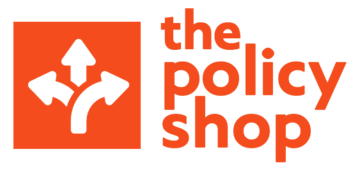About Us
Who
We’re former finance and policy staff from mid-sized and large municipalities, and the Ontario Government
We’re long time tax and fintech service suppliers for Canada’s local public sector
We got together because we noticed trends in municipal finance around uncertainty, pressure to ‘do more with less’ and an expense focus that we thought enabling financial rules and a systematic view of revenue could balance out.
-
Financial Planning Lead
Mike has CPA and CMA accounting designations and diverse public finance experience in Southwestern Ontario, beginning with the City of London’s Public Utilities Commission. He transferred to the City of London’s staff ranks with London Hydro in the 1990s, where he worked in various roles within Finance and Financial Systems, culminating in Deputy Treasurer. More recently, Mike was proud to be the General Manager of Finance, Budget and Information Technology, Chief Financial Officer and Treasurer for the Municipality of Chatham-Kent.
He brings his experience with facility contract administration, asset management plans, long-term strategic financial plans and associated financial policies to The Policy Shop. As Financial Planning Lead, his work concentrates on policy development, service pricing and asset management.
Contact: mike@thepolicyshop.ca
-
Technical Lead
John is a CPA, CA with a decorated career of municipal service, most recently as the General Manager, Finance, Facilities and Court Services, CFO, Treasurer and Deputy CAO for the County of Lambton. Before the County, he worked at two lower tier municipalities. He has overseen diverse organizations with complex, $215 million budgets. Throughout his career, he has been active with MFOA and MCMA and presented at various conferences and seminars.
He has contributed to provincial policy development by participating in various Working Groups and making recommendations on business property assessment, vacancy rebates, performance measurement and unconditional grants. He brings his network and professional focus on different options for achieving operational and political requirements to his projects at The Policy Shop. As Technical Lead, these have included studies related to cost recovery options for servicing new subdivisions, reserve and reserve fund adequacy analysis and service reviews.
Contact: john@thepolicyshop.ca
-
Director
Emily has worked in municipal finance policy at several universities, as a Financial Analyst in the City of Toronto’s budget division, as a Management and Policy Consultant in the Toronto City Manager’s Office, as the Manager of Policy at the Municipal Finance Officers’ Association (MFOA), and as a private consultant to public and professional bodies, most recently through The Policy Shop. As Director, she has completed projects for many municipal governments and municipal associations on asset management, budgeting, own source revenue mobilization and diversification.
Emily is frequently invited to speak about opportunities to strengthen financial governance in Canadian municipalities. She is affiliated with the International Organization for Standardization (ISO) and she holds a Master of Arts in Political Economy.
Contact: emily@thepolicyshop.ca
-
Legislative & Regulatory Lead
Allan is a former Assistant Deputy Minister with the Ontario Ministry of Finance. He has 20+ years of professional public service experience focused on municipal finance policy, with a dual focus on local government funding and own source revenue design from the perspective of establishing legislative authorities to generate revenue and parameters for using them.
Having led a number of tax reform exercises, he brings extensive experience in communicating technical information to non-technical audiences, making recommendations to elected officials and a range of stakeholder engagement and rightsholder consultation experience to The Policy Shop. His data analysis and quantitative research proficiency flow out of education choices. Allan has a Master of Arts in Economics and Bachelor of Science in Computer Science.
As Legislative & Regulatory Lead, Allan plays a key role in mapping out the legal context for municipal revenue and policy development projects. He leads public-facing and targeted consultation activities to bring community leaders into revenue enhancement and diversification studies undertaken for local Councils.
Contact: allan@thepolicyshop.ca
-
Senior Advisor
Jeff is the founder and president of Realtax Inc. Realtax has been recovering realty tax arrears for Ontario municipalities since 1996. It has grown from a one-person start-up to a thriving company with 14 staff members. It is presently serving more than 200 municipalities. Jeff has conducted workshops on tax recovery for MFOA, AMCTO, OMTRA, MMAH, and Seneca College.
As an Advisor to The Policy Shop, he brings the perspective that, while industry-leading expertise and outstanding service are the cornerstones of a professional services organization, the long-term creation of consistently excellent deliverables requires a vision for the future and precise execution in the present.
As Senior Advisor, Jeff supports The Policy Shop’s strategic direction and alignment of the company’s vision, process, output and impact.
Contact: jeff@thepolicyshop.ca
-
Corporate Development Consultant
Bill has deep leadership experience in the finance and technology sectors, spending the last decade building businesses, teams and solutions that support local governments. He’s worked with 2000+ local governments and counting. Prior to The Policy Shop, his professional experience included senior roles with StarDyne Technologies Inc., Aptean, Carmanah Technologies Corp. and Municipal Cloud Solutions.
Before he started advising municipalities, Bill was Chief Operating Officer at a technology startup company and a commercial and corporate banker. As Corporate Development Consultant, Bill’s work includes market segmentation, channel analysis and forecasting buyer and market trends.
Contact: bill@thepolicyshop.ca
Team bios ordered from left to right, top to bottom
What
Translating Council priorities into user-friendly finance policies and new streams of revenue
Assess Existing Finance Policy
Draft New Finance Policy
Non-tax Revenue Options for Budget Consideration (“Money Now”)
Review Revenue Profile
Why
Because around the world,
government power is decentralizing.
The trend is especially pronounced in Commonwealth countries, and it appears to be taking hold in Canada too:
Nunavut was established (1999);
Indigenous governments’ jurisdiction over child and family services was recognised (2019);
In 2023, increasing subnational autonomy is a priority for provinces outside Quebec; and
Having localised service provision, provincial governments don’t have the ‘on-the-ground’ presence or delivery capacity they once did in many communities.
Why local?
Local governments elsewhere have benefitted from the shifting scale of authority and program delivery;
will Canadian municipalities?
Which elected officials and professional staff will take the lead?
With municipalities as service providers, coordinating bodies or governments?
Although the conditions are favourable, it’s not clear yet what the people who run municipalities will make of the moment. That’s why local: Something is bubbling here, right below the surface.
Why policy and revenue?
Governments have four powers to steer society:
Tax, spend, inform and regulate.
Municipalities tend to focus on two, service provision (spend) and, to a lesser extent, inform, so we focus on the other two, regulation (policy-making) and taxation (revenue generation).
[ Why financial policy? ]
It backstops mistaking motion for progress: The sector’s front-line service delivery focus can crowd out ‘back-office’ priorities like creating internal structure and a balanced, deliberate revenue landscape, which is understandable; municipalities can survive without them. But they don’t thrive.
It’s a soft spot: Budget theatrics and incoherent financial decision-making mixed with intermittent fiscal crises have been a drag on public perceptions about whether municipalities can manage public money well enough to be trusted with more of it.
For a sector that tends to understand its purpose in terms of service delivery, the capacity to do more can get collapsed with the capacity to spend more. The phrase ‘do more with less’ usually refers to budget expectations - more output with less input.
Impact is about more than how much cash is in the bank.
By focusing on financial policy and non-tax revenue, we highlight opportunities to impact communities that don’t depend on the size of a municipality’s balances, but on its Council’s willingness to plan by committing to policy and lead change with proposals to increase revenue.
When
The Policy Shop’s predecessor was established in 2012. In 2018, it was incorporated as Policy Shop Inc..
Where
Based in Ontario, most of our clients are Ontario municipalities and local government associations. (Click here to see who.)
Our work has been featured in presentations to Councils across North America, translated into multiple languages and our company was recognized in Corporate Vision’s 2023 Canadian Business Awards as Best Finance Policy Office - Ontario.
Web Visitors
Company Footprint





